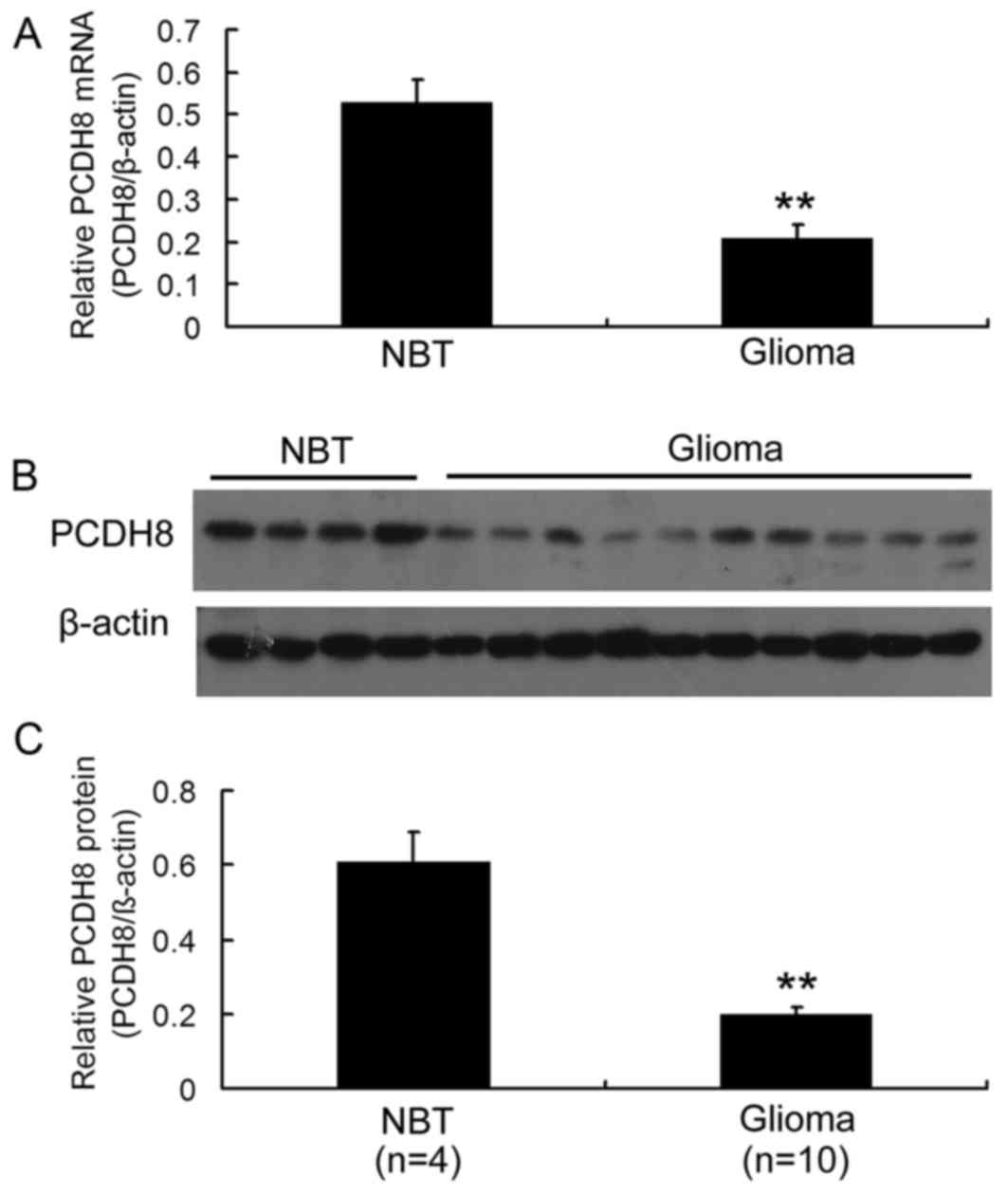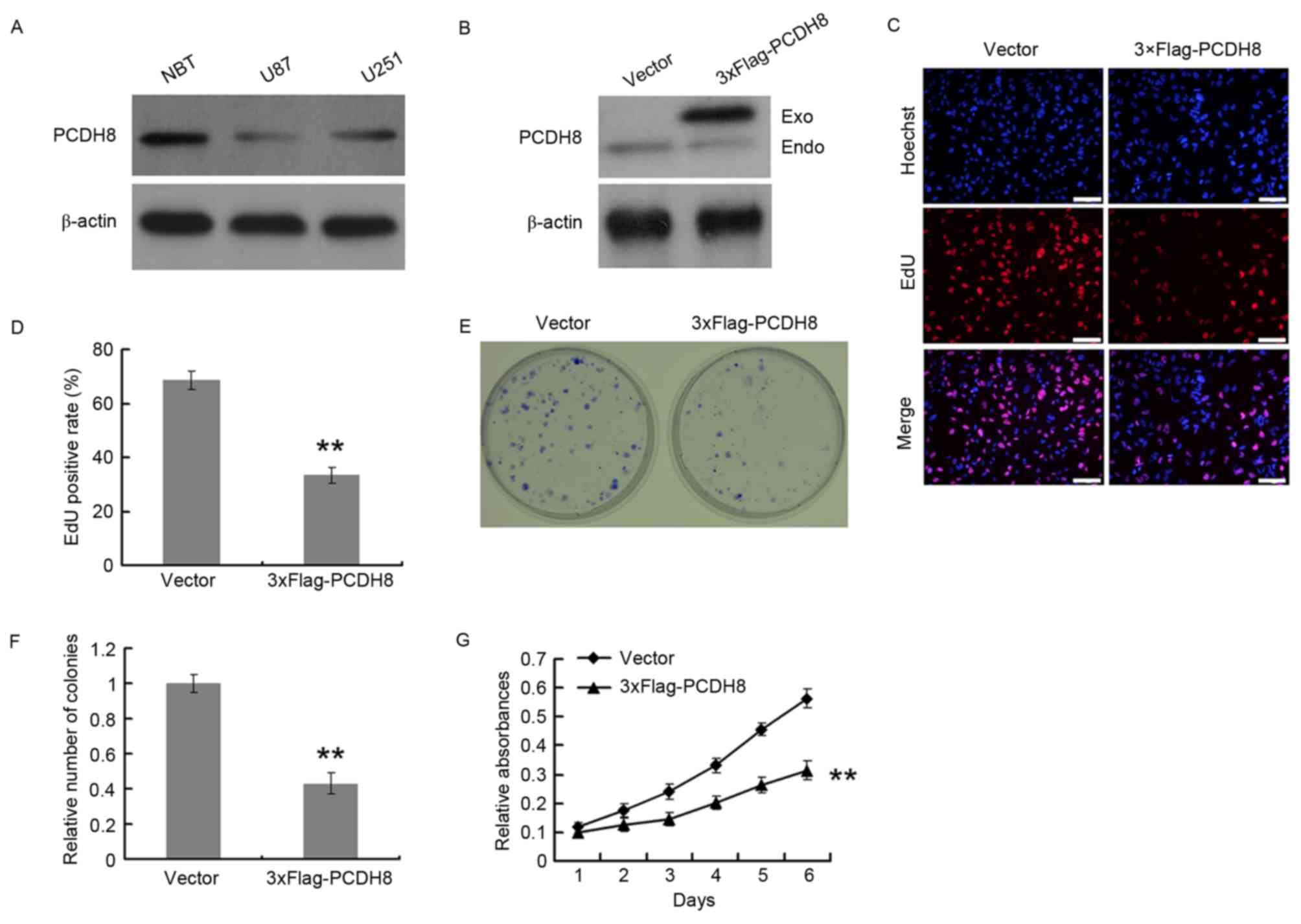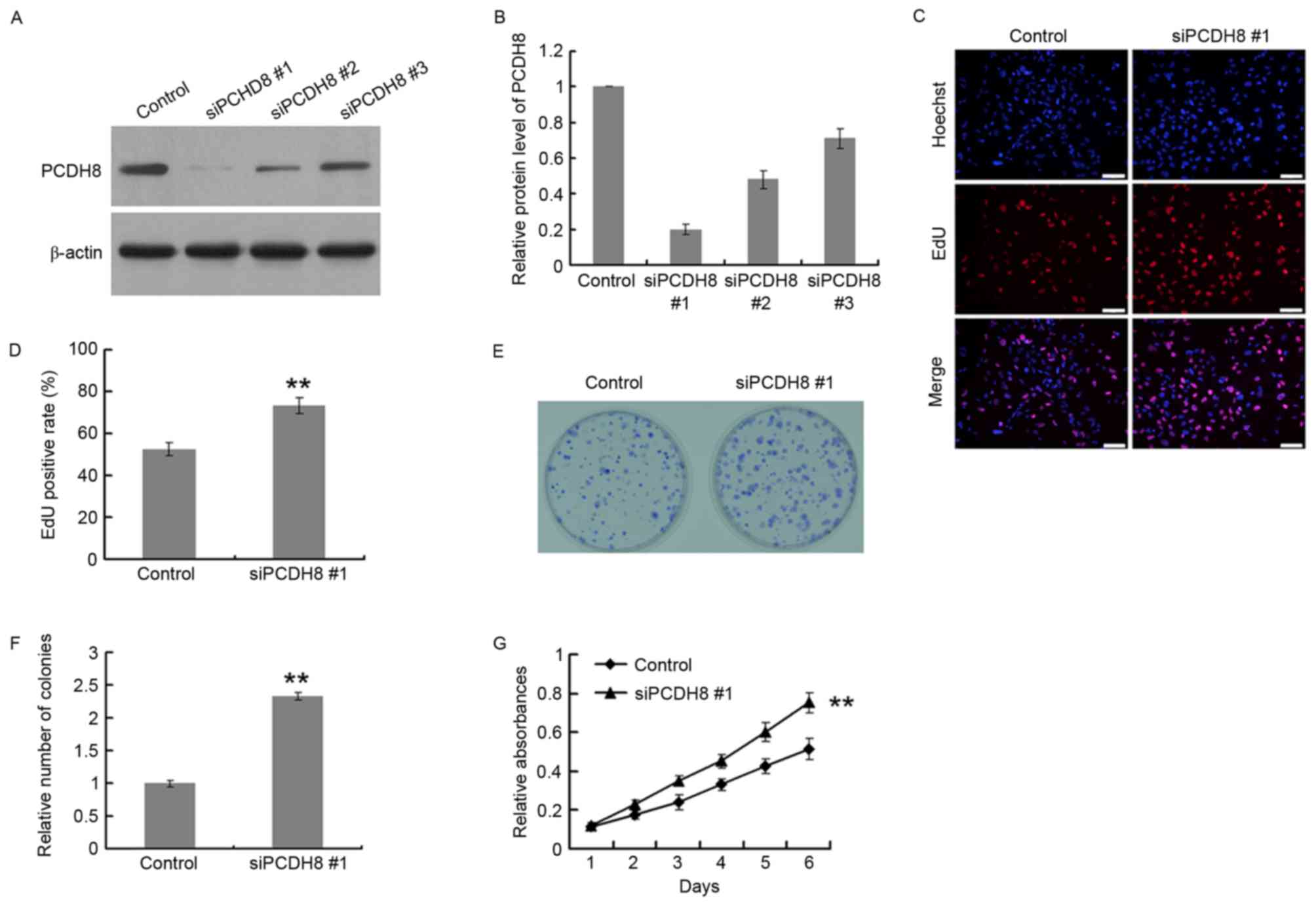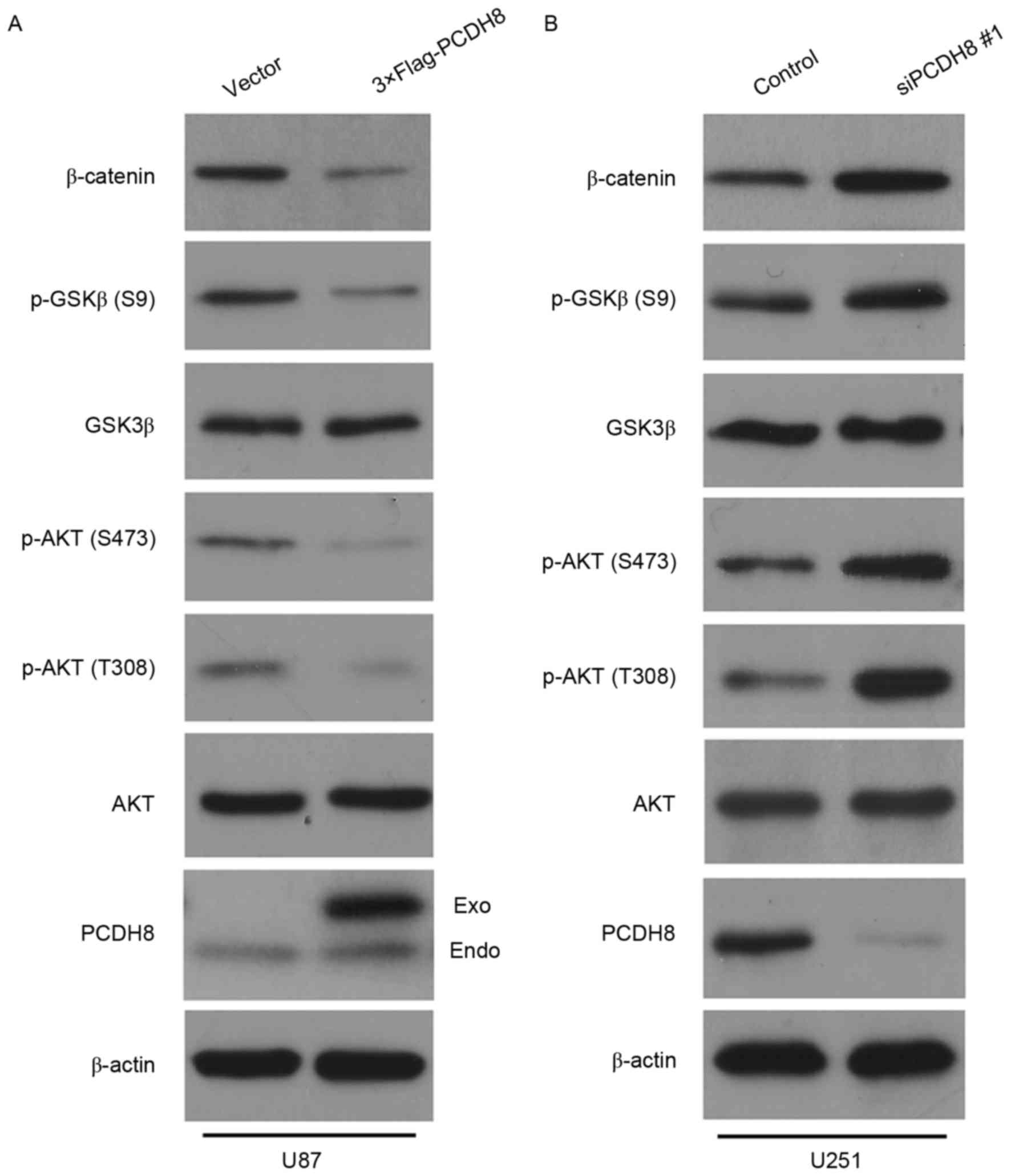|
1
|
Meyer MA: Malignant gliomas in adults. N
Engl J Med. 359:18502008. View Article : Google Scholar : PubMed/NCBI
|
|
2
|
Buonerba C, Di Lorenzo G, Marinelli A,
Federico P, Palmieri G, Imbimbo M, Conti P, Peluso G, De Placido S
and Sampson JH: A comprehensive outlook on intracerebral therapy of
malignant gliomas. Crit Rev Oncol Hematol. 80:54–68. 2011.
View Article : Google Scholar : PubMed/NCBI
|
|
3
|
Sherman JH, Hoes K, Marcus J, Komotar RJ,
Brennan CW and Gutin PH: Neurosurgery for brain tumors: Update on
recent technical advances. Curr Neurol Neurosci Rep. 11:313–319.
2011. View Article : Google Scholar : PubMed/NCBI
|
|
4
|
Fiorentino A, Chiumento C, Caivano R,
Cozzolino M, Pedicini P and Fusco V: Adjuvant radiochemotherapy in
the elderly affected by glioblastoma: Single-institution experience
and literature review. Radiol Med. 118:870–881. 2013.(In Italian).
View Article : Google Scholar : PubMed/NCBI
|
|
5
|
Kim SY, Yasuda S, Tanaka H, Yamagata K and
Kim H: Non-clustered protocadherin. Cell Adh Migr. 5:97–105. 2011.
View Article : Google Scholar : PubMed/NCBI
|
|
6
|
Sano K, Tanihara H, Heimark RL, Obata S,
Davidson M, St John T, Taketani S and Suzuki S: Protocadherins: A
large family of cadherin-related molecules in central nervous
system. EMBO J. 12:2249–2256. 1993.PubMed/NCBI
|
|
7
|
Frank M and Kemler R: Protocadherins. Curr
Opin Cell Biol. 14:557–562. 2002. View Article : Google Scholar : PubMed/NCBI
|
|
8
|
Phillips GR, Tanaka H, Frank M, Elste A,
Fidler L, Benson DL and Colman DR: Gamma-protocadherins are
targeted to subsets of synapses and intracellular organelles in
neurons. J Neurosci. 23:5096–5104. 2003.PubMed/NCBI
|
|
9
|
Kim SY, Chung HS, Sun W and Kim H:
Spatiotemporal expression pattern of non-clustered protocadherin
family members in the developing rat brain. Neuroscience.
147:996–1021. 2007. View Article : Google Scholar : PubMed/NCBI
|
|
10
|
Okazaki N, Takahashi N, Kojima S, Masuho Y
and Koga H: Protocadherin LKC, a new candidate for a tumor
suppressor of colon and liver cancers, its association with contact
inhibition of cell proliferation. Carcinogenesis. 23:1139–1148.
2002. View Article : Google Scholar : PubMed/NCBI
|
|
11
|
Stassar MJ, Devitt G, Brosius M, Rinnab L,
Prang J, Schradin T, Simon J, Petersen S, Kopp-Schneider A and
Zöller M: Identification of human renal cell carcinoma associated
genes by suppression subtractive hybridization. Br J Cancer.
85:1372–1382. 2001. View Article : Google Scholar : PubMed/NCBI
|
|
12
|
Chen MW, Vacherot F, De La Taille A,
Gil-Diez-De-Medina S, Shen R, Friedman RA, Burchardt M, Chopin DK
and Buttyan R: The emergence of protocadherin-PC expression during
the acquisition of apoptosis-resistance by prostate cancer cells.
Oncogene. 21:7861–7871. 2002. View Article : Google Scholar : PubMed/NCBI
|
|
13
|
Waha A, Güntner S, Huang TH, Yan PS,
Arslan B, Pietsch T, Wiestler OD and Waha A: Epigenetic silencing
of the protocadherin family member PCDH-gamma-A11 in astrocytomas.
Neoplasia. 7:193–199. 2005. View Article : Google Scholar : PubMed/NCBI
|
|
14
|
Imoto I, Izumi H, Yokoi S, Hosoda H,
Shibata T, Hosoda F, Ohki M, Hirohashi S and Inazawa J: Frequent
silencing of the candidate tumor suppressor PCDH20 by epigenetic
mechanism in non-small-cell lung cancers. Cancer Res. 66:4617–4626.
2006. View Article : Google Scholar : PubMed/NCBI
|
|
15
|
Ying J, Li H, Seng TJ, Langford C,
Srivastava G, Tsao SW, Putti T, Murray P, Chan AT and Tao Q:
Functional epigenetics identifies a protocadherin PCDH10 as a
candidate tumor suppressor for nasopharyngeal, esophageal and
multiple other carcinomas with frequent methylation. Oncogene.
25:1070–1080. 2006. View Article : Google Scholar : PubMed/NCBI
|
|
16
|
Yu JS, Koujak S, Nagase S, Li CM, Su T,
Wang X, Keniry M, Memeo L, Rojtman A, Mansukhani M, et al: PCDH8,
the human homolog of PAPC, is a candidate tumor suppressor of
breast cancer. Oncogene. 27:4657–4665. 2008. View Article : Google Scholar : PubMed/NCBI
|
|
17
|
Yu J, Cheng YY, Tao Q, Cheung KF, Lam CN,
Geng H, Tian LW, Wong YP, Tong JH, Ying JM, et al: Methylation of
protocadherin 10, a novel tumor suppressor, is associated with poor
prognosis in patients with gastric cancer. Gastroenterology.
136:640–651, e1. 2009. View Article : Google Scholar : PubMed/NCBI
|
|
18
|
Strehl S, Glatt K, Liu QM, Glatt H and
Lalande M: Characterization of two novel protocadherins (PCDH8 and
PCDH9) localized on human chromosome 13 and mouse chromosome 14.
Genomics. 53:81–89. 1998. View Article : Google Scholar : PubMed/NCBI
|
|
19
|
He D, Zeng Q, Ren G, Xiang T, Qian Y, Hu
Q, Zhu J, Hong S and Hu G: Protocadherin8 is a functional tumor
suppressor frequently inactivated by promoter methylation in
nasopharyngeal carcinoma. Eur J Cancer Prev. 21:569–575. 2012.
View Article : Google Scholar : PubMed/NCBI
|
|
20
|
Zhang D, Zhao W, Liao X, Bi T, Li H and
Che X: Frequent silencing of protocadherin 8 by promoter
methylation, a candidate tumor suppressor for human gastric cancer.
Oncol Rep. 28:1785–1791. 2012.PubMed/NCBI
|
|
21
|
Lin YL, Ma JH, Luo XL, Guan TY and Li ZG:
Clinical significance of protocadherin-8 (PCDH8) promoter
methylation in bladder cancer. J Int Med Res. 41:48–54. 2013.
View Article : Google Scholar : PubMed/NCBI
|
|
22
|
Lin YL, Wang YL, Ma JG and Li WP: Clinical
significance of protocadherin 8 (PCDH8) promoter methylation in
non-muscle invasive bladder cancer. J Exp Clin Cancer Res.
33:682014. View Article : Google Scholar : PubMed/NCBI
|
|
23
|
Livak KJ and Schmittgen TD: Analysis of
relative gene expression data using real-time quantitative PCR and
the 2(−Delta Delta C(T)) Method. Methods. 25:402–408. 2001.
View Article : Google Scholar : PubMed/NCBI
|
|
24
|
Xu Y, Yang Z, Yuan H, Li Z, Li Y, Liu Q
and Chen J: PCDH10 inhibits cell proliferation of multiple myeloma
via the negative regulation of the Wnt/β-catenin/BCL-9 signaling
pathway. Oncol Rep. 34:747–754. 2015.PubMed/NCBI
|
|
25
|
Ge X and Wang X: Role of Wnt canonical
pathway in hematological malignancies. J Hematol Oncol. 3:332010.
View Article : Google Scholar : PubMed/NCBI
|
|
26
|
Liu YZ, Wu K, Huang J, Liu Y, Wang X, Meng
ZJ, Yuan SX, Wang DX, Luo JY, Zuo GW, et al: The PTEN/PI3K/Akt and
Wnt/β-catenin signaling pathways are involved in the inhibitory
effect of resveratrol on human colon cancer cell proliferation. Int
J Oncol. 45:104–112. 2014.PubMed/NCBI
|


















